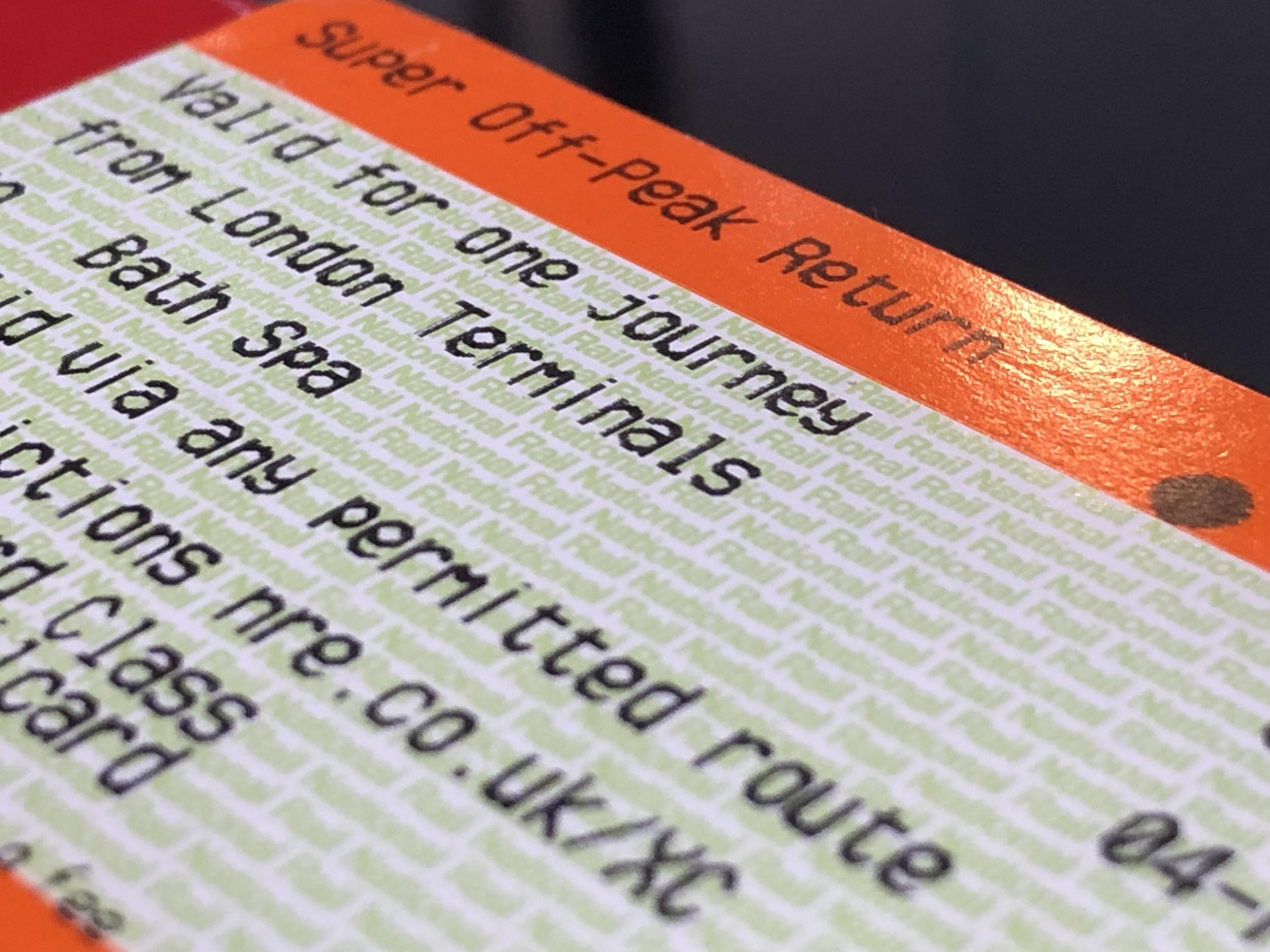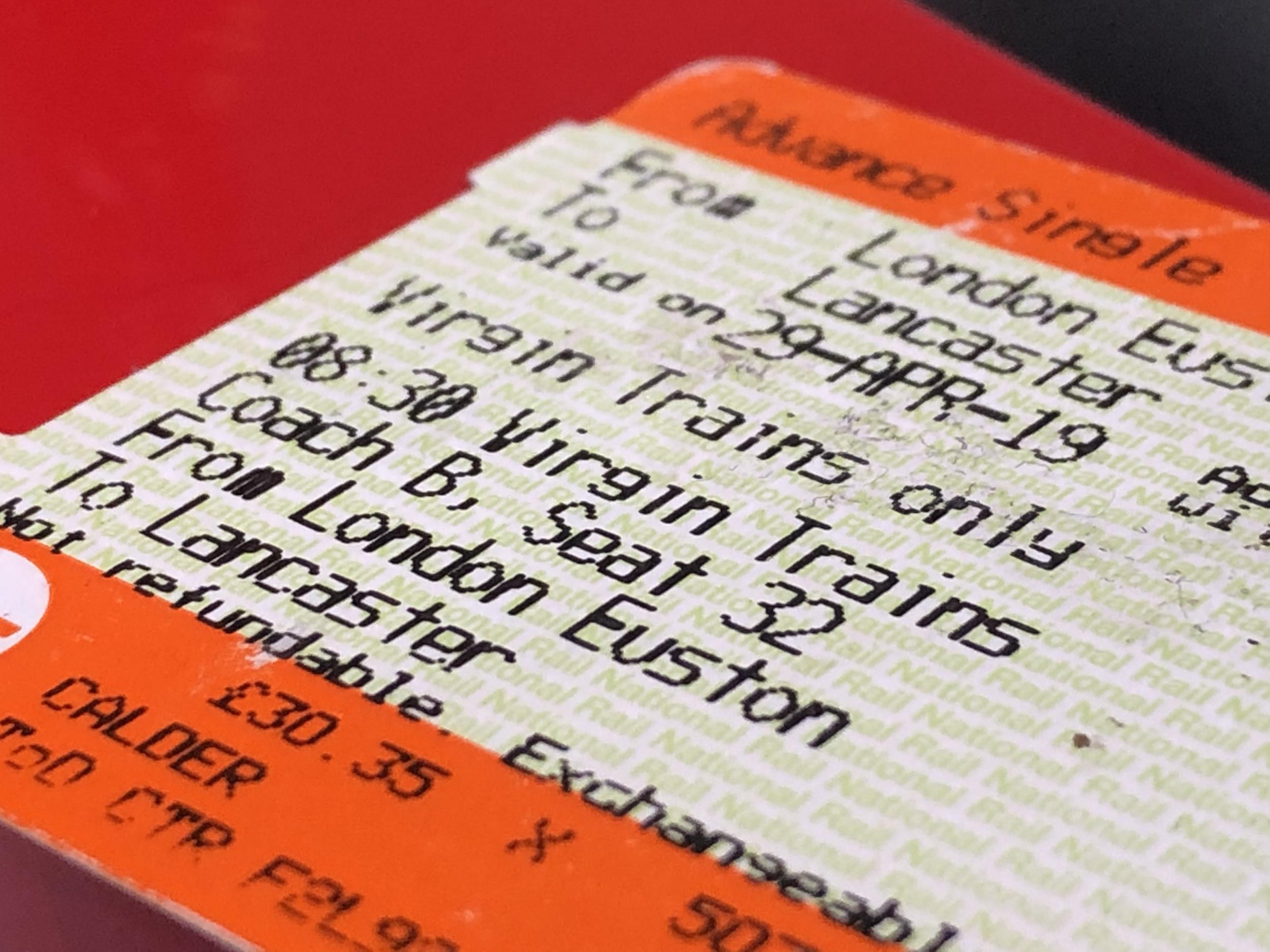Virgin Trains tells passengers they must have reserved seats
‘We believe we should import the airline model into the long-distance rail sector,’ says the train operator
Your support helps us to tell the story
From reproductive rights to climate change to Big Tech, The Independent is on the ground when the story is developing. Whether it's investigating the financials of Elon Musk's pro-Trump PAC or producing our latest documentary, 'The A Word', which shines a light on the American women fighting for reproductive rights, we know how important it is to parse out the facts from the messaging.
At such a critical moment in US history, we need reporters on the ground. Your donation allows us to keep sending journalists to speak to both sides of the story.
The Independent is trusted by Americans across the entire political spectrum. And unlike many other quality news outlets, we choose not to lock Americans out of our reporting and analysis with paywalls. We believe quality journalism should be available to everyone, paid for by those who can afford it.
Your support makes all the difference.Many rail passengers have rejected a call by Virgin Trains to insist that every long-distance traveller has a reserved seat.
The West Coast train operator wants the “turn up and go” principle to be scrapped in favour of an airline-style system with compulsory reservations and a strict limit on passenger numbers.
This rule is applied on many foreign railways, including French long-distance services, as well as Eurostar trains from London to Brussels and Paris.
But in a Twitter poll, travellers have voted by 56:44 per cent to retain the status quo.
Virgin Trains is to lose its franchise within the next year, after the Department for Transport (DfT) ruled its bid non-compliant over pension provisions.
Nevertheless the train operator has submitted evidence to the Williams Review into the future of the railway in which it calls for radical changes to long-distance rail travel.
Train companies providing long-distance services are obliged to offer an unlimited number of off-peak return tickets at fares set by the Department for Transport (DfT).
“Inevitably they are too cheap for some services and too expensive for others,” says Virgin Trains.
“This results in the all-too-frequent sight of customers forced to stand on a long-distance journey.”

Rail firms have no control over the number of people boarding each train unless the crowding is physically unsafe.
Instead, Virgin Trains says: “We believe we should import the airline model into the long-distance rail sector.”
“Anyone with a season ticket would need to book a seat, and customers with ‘open’, fully-flexible tickets would also have to book a seat rather than simply turning up at the last minute for any train.
“Once all seats were taken, no further tickets could be sold for that train or reservations made.”
While the policy change would undoubtedly make everyone more comfortable, it would remove the flexibility that has long been a cornerstone of UK rail travel.
The proportion favouring retaining the right of flexible ticket-holders to travel on any train was 56 per cent.
Only 44 per cent wanted to make reservations compulsory for long-distance services.
At the London Euston hub of Virgin Trains, Katherine Jones was waiting for a train to Liverpool. She rejected the plan, saying: “I’m a last-minute person. I like to decide which train I go on at the last minute.
“For me it would mean potentially not be able to travel.”
Another passenger, Margaret Gascoigne from the Wirral, said: “There should be a bit of flexibility, but they’ve got to provide seating. If someone’s paid their money, surely they should have a seat.”

Virgin Trains is also calling for train slots to be auctioned off to different operators, with the taxpayer benefiting from the revenue generated.
The train operator has suggested a trial on the East Coast main line linking London with Yorkshire, Newcastle and Scotland.
Virgin Trains East Coast surrendered its franchise in 2018 after sustaining heavy losses, and a public-service operator, LNER, currently runs trains on the line.
“Without the constraints of a franchise contract, it would be possible to implement a pilot scheme in a controlled way relatively quickly,” says Virgin Trains.
The firm has also mooted that a public-service operator could run long-distance slots which the market believes are not commercially viable.
A London-Manchester train will also be used by commuters over the relatively short distances between the capital and Milton Keynes Central, and between Stoke and Stockport.
But Virgin says fewer than 10 per cent of journeys on its trains are made by commuters.
It recommends changing the stopping pattern of long-distance slots, so they do not serve short-distance commuter markets.

Join our commenting forum
Join thought-provoking conversations, follow other Independent readers and see their replies
Comments